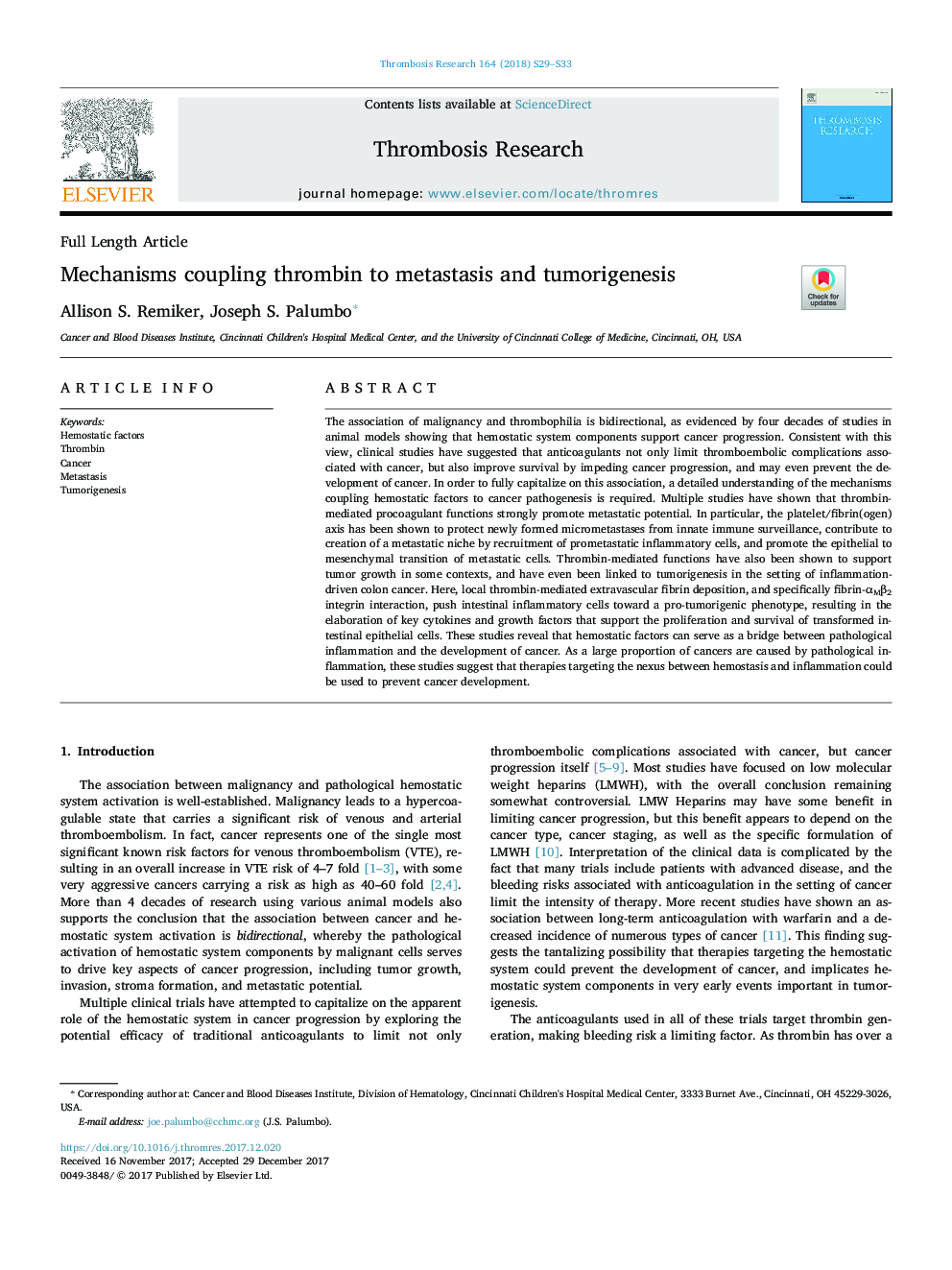| کد مقاله | کد نشریه | سال انتشار | مقاله انگلیسی | نسخه تمام متن |
|---|---|---|---|---|
| 8679467 | 1579179 | 2018 | 5 صفحه PDF | دانلود رایگان |
عنوان انگلیسی مقاله ISI
Mechanisms coupling thrombin to metastasis and tumorigenesis
ترجمه فارسی عنوان
مکانیسم ترومبین اتصال به متاستاز و تومور زایی
دانلود مقاله + سفارش ترجمه
دانلود مقاله ISI انگلیسی
رایگان برای ایرانیان
کلمات کلیدی
عوامل هموستازی، ترومبین سرطان، متاستاز، تومورزایی،
موضوعات مرتبط
علوم پزشکی و سلامت
پزشکی و دندانپزشکی
کاردیولوژی و پزشکی قلب و عروق
چکیده انگلیسی
The association of malignancy and thrombophilia is bidirectional, as evidenced by four decades of studies in animal models showing that hemostatic system components support cancer progression. Consistent with this view, clinical studies have suggested that anticoagulants not only limit thromboembolic complications associated with cancer, but also improve survival by impeding cancer progression, and may even prevent the development of cancer. In order to fully capitalize on this association, a detailed understanding of the mechanisms coupling hemostatic factors to cancer pathogenesis is required. Multiple studies have shown that thrombin-mediated procoagulant functions strongly promote metastatic potential. In particular, the platelet/fibrin(ogen) axis has been shown to protect newly formed micrometastases from innate immune surveillance, contribute to creation of a metastatic niche by recruitment of prometastatic inflammatory cells, and promote the epithelial to mesenchymal transition of metastatic cells. Thrombin-mediated functions have also been shown to support tumor growth in some contexts, and have even been linked to tumorigenesis in the setting of inflammation-driven colon cancer. Here, local thrombin-mediated extravascular fibrin deposition, and specifically fibrin-αMβ2 integrin interaction, push intestinal inflammatory cells toward a pro-tumorigenic phenotype, resulting in the elaboration of key cytokines and growth factors that support the proliferation and survival of transformed intestinal epithelial cells. These studies reveal that hemostatic factors can serve as a bridge between pathological inflammation and the development of cancer. As a large proportion of cancers are caused by pathological inflammation, these studies suggest that therapies targeting the nexus between hemostasis and inflammation could be used to prevent cancer development.
ناشر
Database: Elsevier - ScienceDirect (ساینس دایرکت)
Journal: Thrombosis Research - Volume 164, Supplement 1, April 2018, Pages S29-S33
Journal: Thrombosis Research - Volume 164, Supplement 1, April 2018, Pages S29-S33
نویسندگان
Allison S. Remiker, Joseph S. Palumbo,
